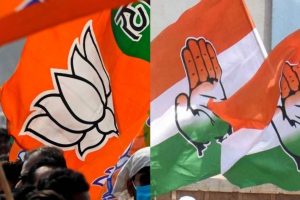Economic growth is not enough. Erosion of democracy is not enough. Expectations matter. Expectations management matters even more. And yet, see what happened in Chile, a country with fairly high economic growth and a stable democracy. In 2019, it witnessed an outburst of anger on the streets paving the way for the leftists to emerge victors. This can happen to other elected autocracies
Charles Dickens’ aphorism, “ask no questions, and you will be told no lies,” has been turned on its head in the post-truth world. A larger part of the media across the world has stopped asking questions but the political class, self-serving maximum leaders in particular, haven’t stopped telling lies. The empire of lies is flourishing in the age of permacrisis, what Hannah Arendt had called “generalised crisis” in her book Crisis of Culture.
Uncertainty and volatility have become the new normal. It has led to a sense of pessimism. Artificial Intelligence is a new form of technological arrogance. Nothing will perhaps remain uniquely human in future. An alarming thought! Techno-solutionism is giving way to technopessimism. American economist Paul Craig Roberts’ book Empire of Lies lays bare how the Western mainstream media provides propaganda rather than news. The story is no different in other parts of the world. The false narratives, he argues, have the intended objective of surrounding the public with a fog of misinformation so as to condition them to hate and fear. The posttruth world is witnessing brainwashing on an Orwellian scale. Social media is far worse.
Elon Musk’s boast about Twitter being important to the future of civilisation notwithstanding, social media platforms are essentially money-making enterprises. As former CBS president Les Moonves said in 2016, Trump “may not be good for democracy,” but he’s “damn good for CBS.” Last year, speaking at the University of Chicago, former US President Barack Obama blamed these platforms’ uncontrolled “pursuit of profits” which is undermining democracy. Hate speeches against Asians, Afro-Americans, Muslims, Jews, LGBT+ have surged after Elon Musk bought Twitter. Navigating through the minefield of partisan agendas and hyperbole that permeate our political discourse is a huge challenge. We are bombarded with AIgenerated information. Fake news is truth-proof.
Today media no longer informs, much less enlightens. But these are not new problems. Socrates believed that writing was not an effective means of communicating knowledge. Plato cautioned that the written word would lead to lying. Many contended that the printing press was an instrument of spreading lies. Joseph Goebbels used radio to channel Nazi propaganda into German homes. Karl Popper had serious reservations about television.
He warned that “democracy will not survive if it doesn’t place effective controls on television and the power it wields on shaping our cultural and moral environment.” Imagine what he would have to say today about internet and the social media. But who benefits? Europe’s far right is marching steadily into the mainstream. What we are witnessing is “electronically enhanced totalitarianism.” The conservatives across the world are embracing autocracy. The far-right is winning in country after country in Europe.
It is not necessarily the triumph of capitalism. It is its ability to hijack the narrative of growth in the post-truth world. The far right is riding high on anti-migration and Euroscepticism. These parties have succeeded in creating a spectre of a new globalised crisis. Voters are also disillusioned with conventional parties. The left and democratic parties are no match as they suffer from a poverty of dreams. It is not enough to invoke egalitarianism. The left, in particular, needs to articulate theoretically how socialism is a path to equity and fairer distribution of wealth.
University of Barcelona professor Laura Llevadot says that the moralistic left has limited itself to “lecturing people.” Capitalism, on the other hand, has understood how to pander to voters’ narcissistic desires. The left’s ideas on eco-socialism, platform socialism, post-work and basic income are good.
But have the left parties articulated them enough? The pantomime of the absurd thus has a field day. Much of what media does is propaganda which is information with an agenda. Media scholar James Carey says that ‘without the institutions of democracy, journalists are reduced to propagandists or entertainers.” Governments led by strong leaders know how to win.
They have a formula to have their narratives pass as truth in the mind of the people. The powerful consensus that once upheld the neutrality of key institutions as essential to maintaining peace in liberal societies is collapsing. What is distressing is that digital oligarchs have begun weaponising the banks and other institutions. As Jacob Siegel, columnist of the Tablet Magazine, says, “today it is banks terminating customers for their beliefs; tomorrow it may be primary schools and hospitals.”
What he finds even more alarming is the fact that individuals can be “disconnected and depersoned by institutions that they didn’t realise possessed such powers.” Banks and other agencies are engaging in such nefarious games under the watchful eyes of governments. A world in which eccentric billionaires and digital oligarchs control our public spheres is a very dangerous place to live in. With big leaders, people and institutions have become small.
Recent polls show that millions of American whites would approve of a dictatorship. Tens of millions would again elect Donald Trump as president. They still prefer to vote for him even though he said he would suspend parts of the Constitution. But there is a silver lining. Economic growth is not enough. Erosion of democracy is not enough. Expectations matter. Expectations management matters even more. And yet, see what happened in Chile, a country with fairly high economic growth and a stable democracy. In 2019, it witnessed an outburst of anger on the streets paving the way for the leftists to emerge victors. This can happen to other elected autocracies.
French sociologist Georges Bernanos says, “there remains the unforeseen. And the unforeseen is never negligible.” The crisis is multiplying. Thanks to the same social media, people are fast losing faith in institutions including those gatekeeping institutions having the power to decide what passes as truth. All said, a lie can “travel halfway around the world, to borrow a phrase from Mark Twain, “while the truth is putting on its shoes.” French novelist Emile Zola’s words give us hope.
She says, “when truth is buried underground, it grows, it chokes, it gathers such an explosive force that on the day it busts out, it blows up everything with it.”
(The writer is director, Institute of Social Sciences, Delhi)











